Eric Moreno
Building Machine Learning Challenges for Anomaly Detection in Science
Mar 03, 2025



Abstract:Scientific discoveries are often made by finding a pattern or object that was not predicted by the known rules of science. Oftentimes, these anomalous events or objects that do not conform to the norms are an indication that the rules of science governing the data are incomplete, and something new needs to be present to explain these unexpected outliers. The challenge of finding anomalies can be confounding since it requires codifying a complete knowledge of the known scientific behaviors and then projecting these known behaviors on the data to look for deviations. When utilizing machine learning, this presents a particular challenge since we require that the model not only understands scientific data perfectly but also recognizes when the data is inconsistent and out of the scope of its trained behavior. In this paper, we present three datasets aimed at developing machine learning-based anomaly detection for disparate scientific domains covering astrophysics, genomics, and polar science. We present the different datasets along with a scheme to make machine learning challenges around the three datasets findable, accessible, interoperable, and reusable (FAIR). Furthermore, we present an approach that generalizes to future machine learning challenges, enabling the possibility of large, more compute-intensive challenges that can ultimately lead to scientific discovery.
Rapid Likelihood Free Inference of Compact Binary Coalescences using Accelerated Hardware
Jul 26, 2024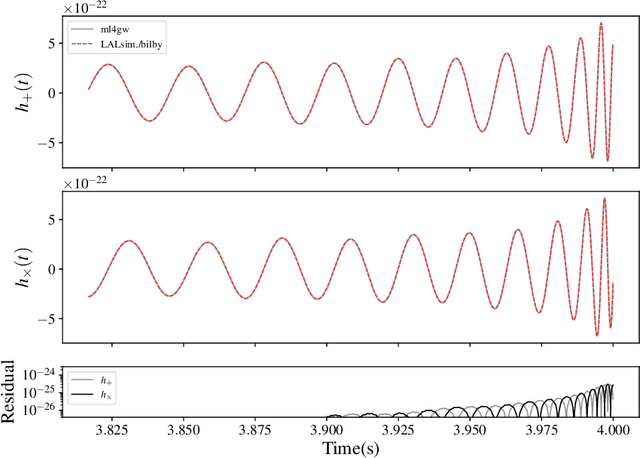
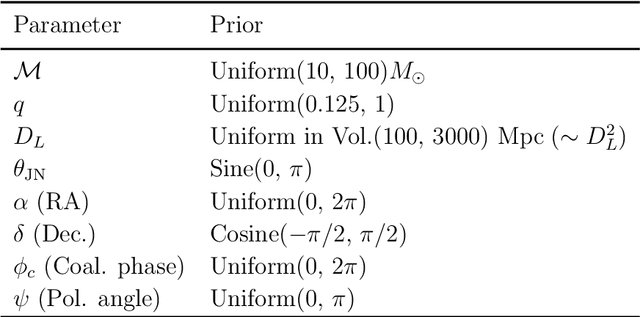
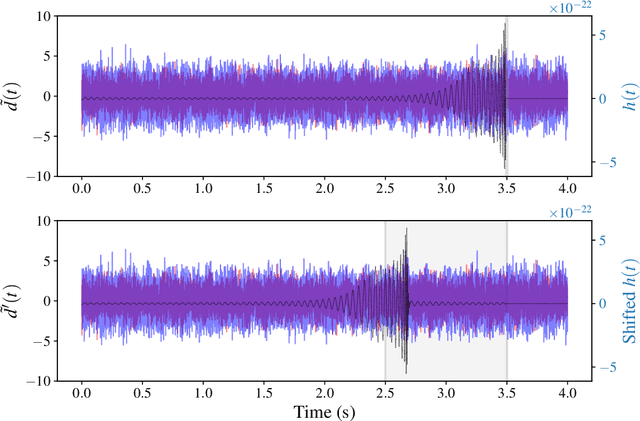
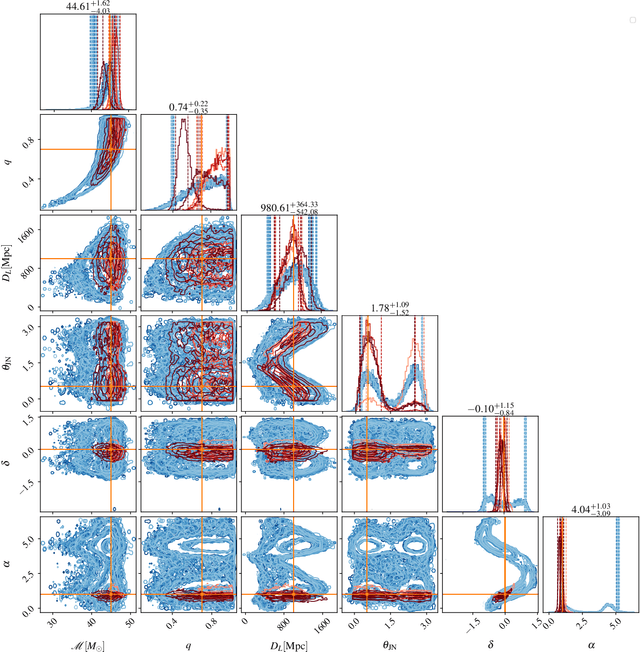
Abstract:We report a gravitational-wave parameter estimation algorithm, AMPLFI, based on likelihood-free inference using normalizing flows. The focus of AMPLFI is to perform real-time parameter estimation for candidates detected by machine-learning based compact binary coalescence search, Aframe. We present details of our algorithm and optimizations done related to data-loading and pre-processing on accelerated hardware. We train our model using binary black-hole (BBH) simulations on real LIGO-Virgo detector noise. Our model has $\sim 6$ million trainable parameters with training times $\lesssim 24$ hours. Based on online deployment on a mock data stream of LIGO-Virgo data, Aframe + AMPLFI is able to pick up BBH candidates and infer parameters for real-time alerts from data acquisition with a net latency of $\sim 6$s.
Ultra Fast Transformers on FPGAs for Particle Physics Experiments
Feb 01, 2024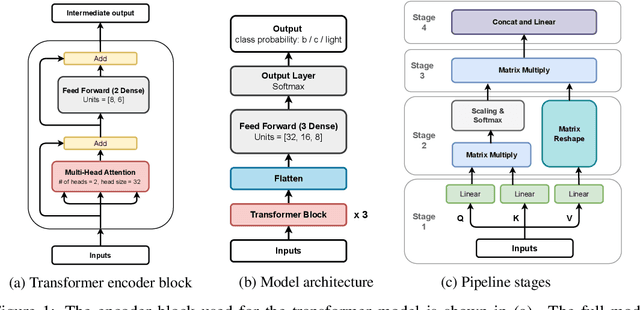

Abstract:This work introduces a highly efficient implementation of the transformer architecture on a Field-Programmable Gate Array (FPGA) by using the \texttt{hls4ml} tool. Given the demonstrated effectiveness of transformer models in addressing a wide range of problems, their application in experimental triggers within particle physics becomes a subject of significant interest. In this work, we have implemented critical components of a transformer model, such as multi-head attention and softmax layers. To evaluate the effectiveness of our implementation, we have focused on a particle physics jet flavor tagging problem, employing a public dataset. We recorded latency under 2 $\mu$s on the Xilinx UltraScale+ FPGA, which is compatible with hardware trigger requirements at the CERN Large Hadron Collider experiments.
* 6 pages, 2 figures
Applications and Techniques for Fast Machine Learning in Science
Oct 25, 2021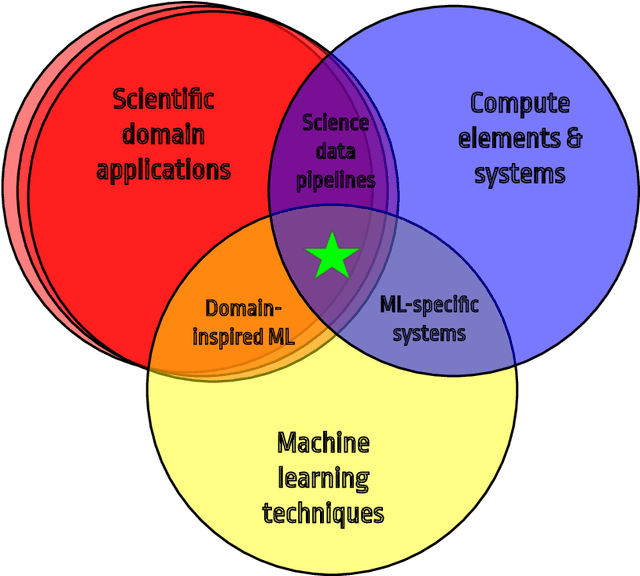
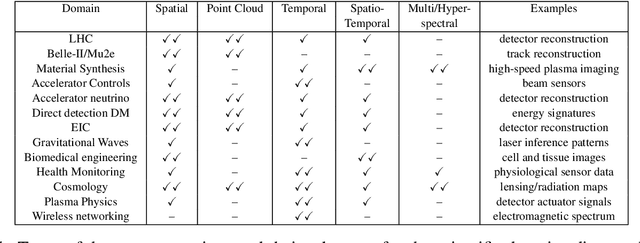
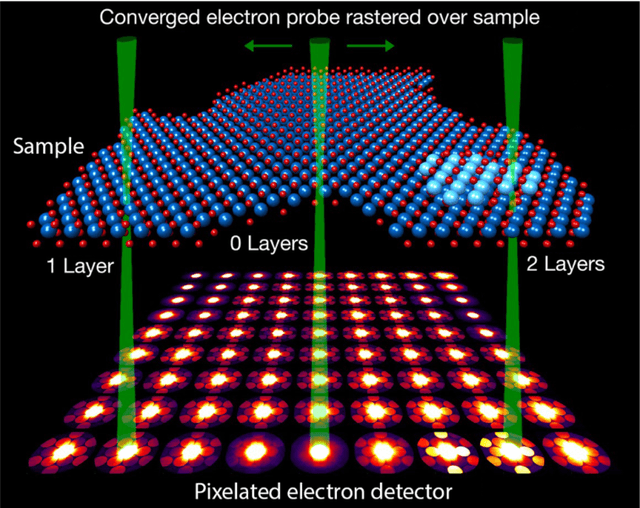

Abstract:In this community review report, we discuss applications and techniques for fast machine learning (ML) in science -- the concept of integrating power ML methods into the real-time experimental data processing loop to accelerate scientific discovery. The material for the report builds on two workshops held by the Fast ML for Science community and covers three main areas: applications for fast ML across a number of scientific domains; techniques for training and implementing performant and resource-efficient ML algorithms; and computing architectures, platforms, and technologies for deploying these algorithms. We also present overlapping challenges across the multiple scientific domains where common solutions can be found. This community report is intended to give plenty of examples and inspiration for scientific discovery through integrated and accelerated ML solutions. This is followed by a high-level overview and organization of technical advances, including an abundance of pointers to source material, which can enable these breakthroughs.
Accelerating Recurrent Neural Networks for Gravitational Wave Experiments
Jun 26, 2021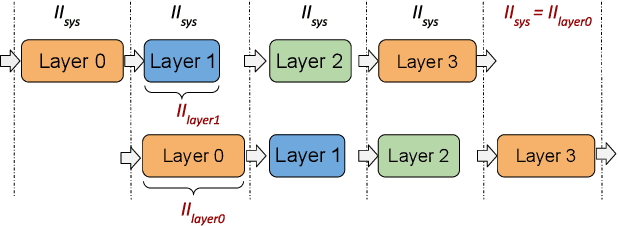
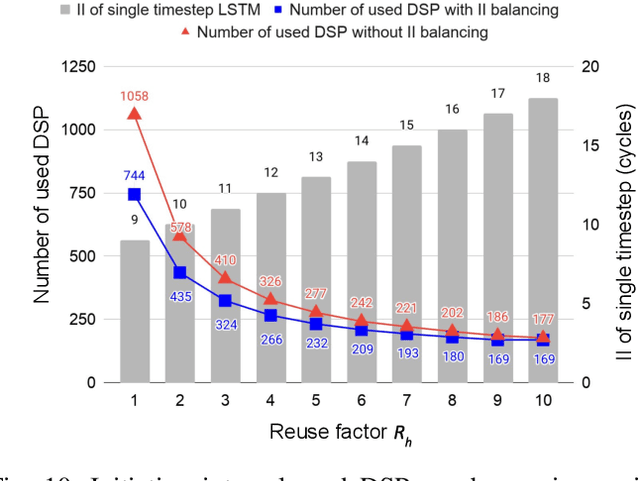
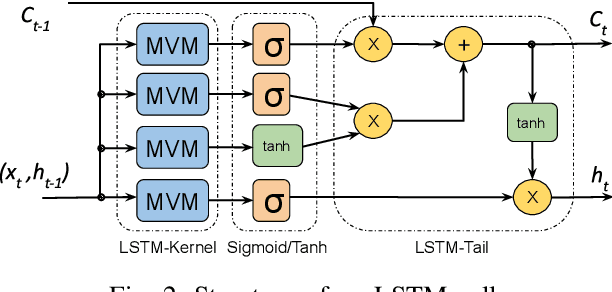

Abstract:This paper presents novel reconfigurable architectures for reducing the latency of recurrent neural networks (RNNs) that are used for detecting gravitational waves. Gravitational interferometers such as the LIGO detectors capture cosmic events such as black hole mergers which happen at unknown times and of varying durations, producing time-series data. We have developed a new architecture capable of accelerating RNN inference for analyzing time-series data from LIGO detectors. This architecture is based on optimizing the initiation intervals (II) in a multi-layer LSTM (Long Short-Term Memory) network, by identifying appropriate reuse factors for each layer. A customizable template for this architecture has been designed, which enables the generation of low-latency FPGA designs with efficient resource utilization using high-level synthesis tools. The proposed approach has been evaluated based on two LSTM models, targeting a ZYNQ 7045 FPGA and a U250 FPGA. Experimental results show that with balanced II, the number of DSPs can be reduced up to 42% while achieving the same IIs. When compared to other FPGA-based LSTM designs, our design can achieve about 4.92 to 12.4 times lower latency.
 Add to Chrome
Add to Chrome Add to Firefox
Add to Firefox Add to Edge
Add to Edge